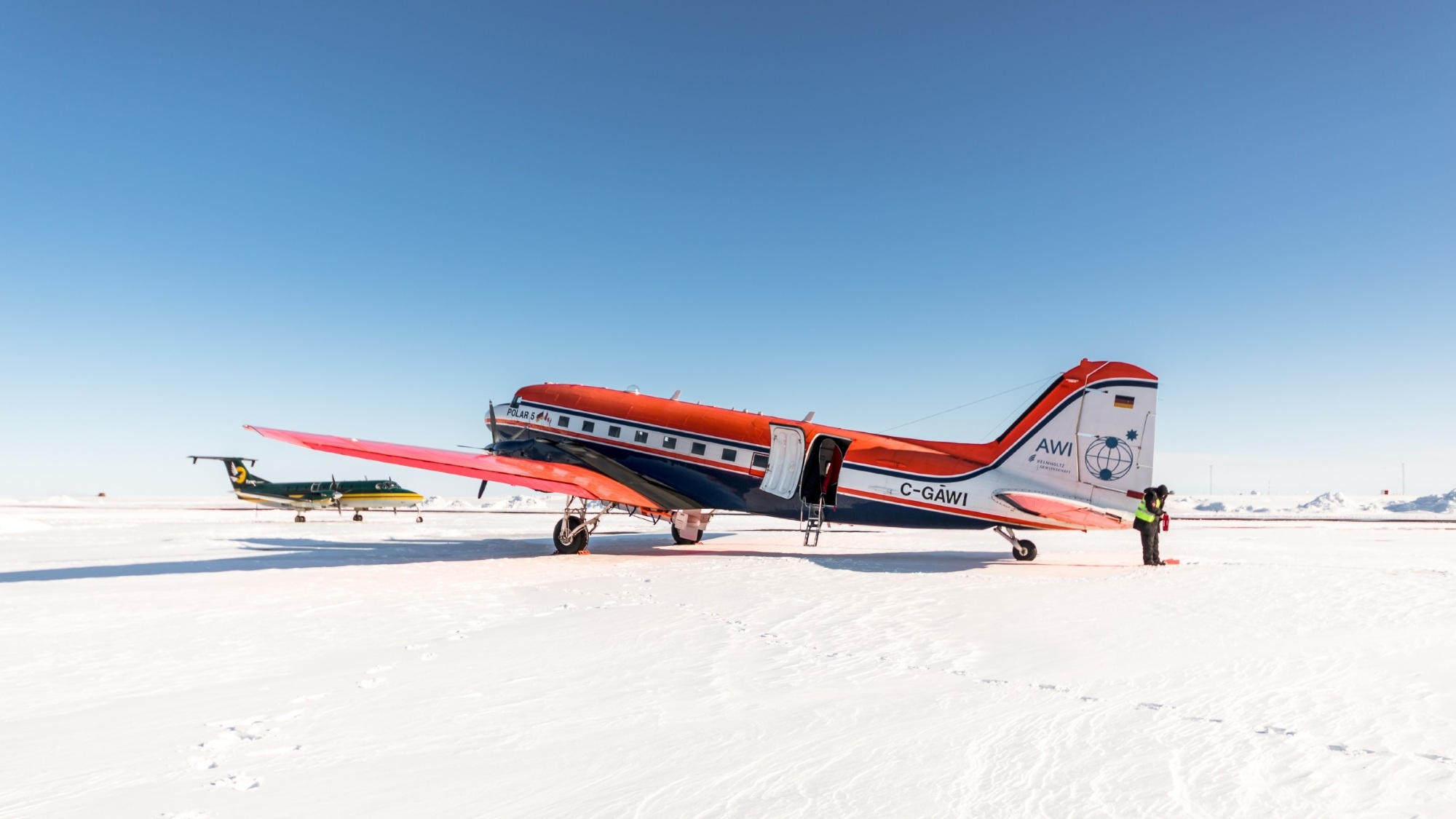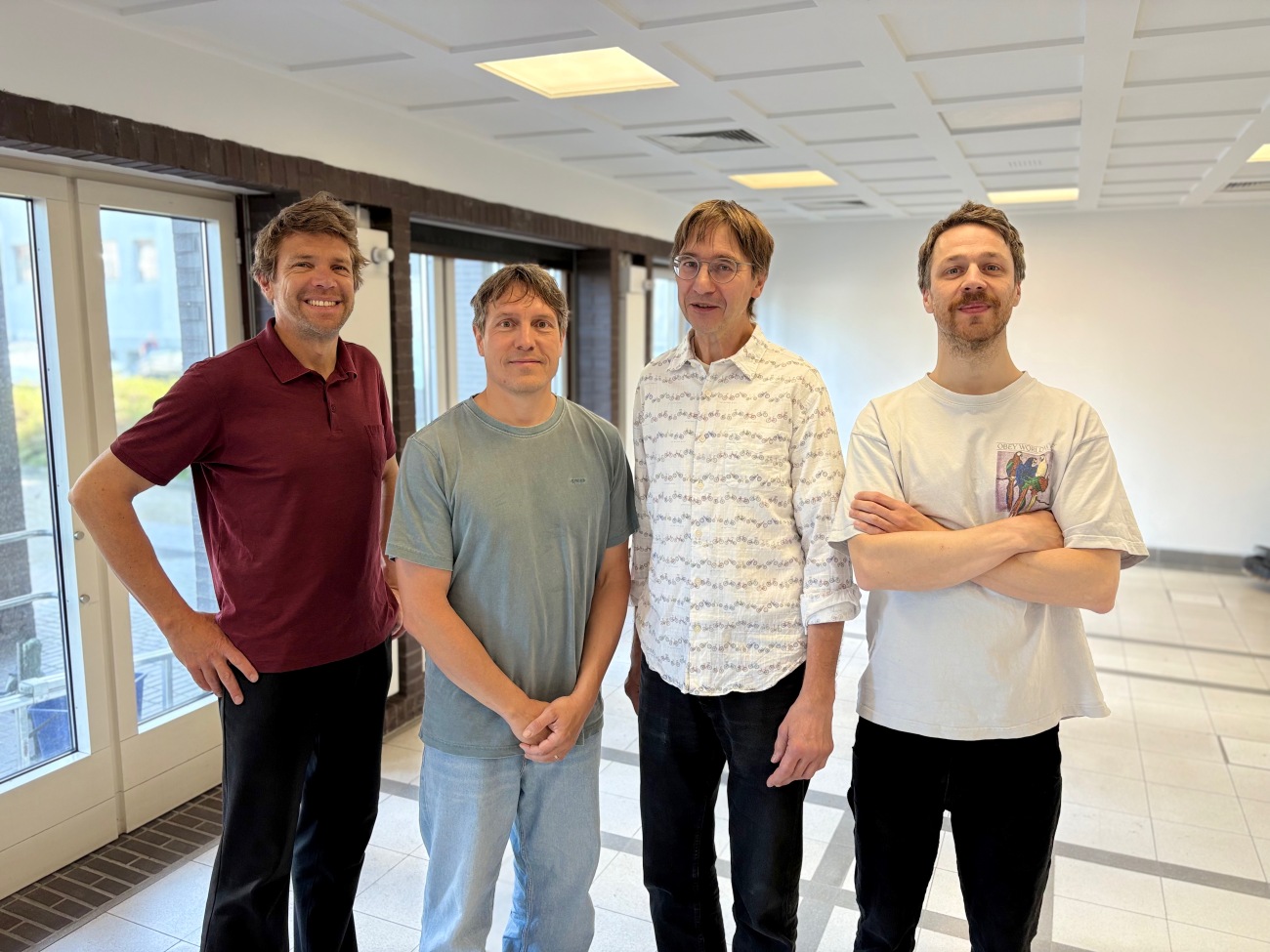
© S. Hendricks / AWI
Data Champion 2025
AWI’s Radar Data Viewer Team Makes Research Data from Three Decades Globally Available
Why should the academic community better incentivize collecting and analyzing data; and why is research data meant to be shared? An interview with Professor Olaf Eisen, who nominated his colleagues for the Data Champion Award 2025.
Managing and providing fair access to research data might seem rather bland to most laypersons. Nonetheless, we have all seen how this topic has quickly gained significance in recent weeks in the USA. Research data could be lost forever if it is not protected. In this case, risk mitigation involves sharing research data with others, thereby making it freely accessible and usable. The Alfred Wegener Institute Helmholtz Center for Polar and Marine Research (AWI) has been conducting airborne radar echo sounding measurements over Antarctica and Greenland to investigate ice shields and their interactions with climatic and geological processes. Through its connection to the PANGAEA database, AWI’s Radar Data Viewer makes this data freely available to the public in standardized formats. The three members of the Field Glaciology research group – Dr. Daniel Steinhage, Dr. Veit Helm, and Dr. Steven Franke – will receive the Data Champion Award 2025 for this effort. Professor Olaf Eisen nominated them and tells about this undertaking.
Professor Eisen, how does the Radar Data Viewer contribute to making data fair and accessible worldwide?
Large research infrastructures such as the polar research aircraft are quite expensive and data is often only collected for use in a certain project. If this data is made available globally, additional researchers can use it for their projects as well. For over ten years, we have been looking for a way to establish a platform to make AWI’s research data from past decades available. This process is complicated and requires a lot of work, since there are six different radar systems in use here, one of which has used three generations of data collection. Part of the task therefore included not just collecting the data, but first defining a uniform data format and bringing all the data into a common processing stage. We have used the Radar Data Viewer for the glaciology radargrams, making research data that spans more than three decades globally available.
What role does each of you play in this team?
Our team consists of four people who have contributed their specific expertise to the project beyond their regular work responsibilities. None of us works in a data center that normally handles data preparation such as this, but we have all found time for this project.
Dr. Daniel Steinhage, AWI researcher specializing in logistics and research platforms, added missing metadata from a time in which notes were mainly taken on paper. He also prepared older data so that it could be integrated into AWI’s current processing system.
Dr. Veit Helm, AWI glaciologist and primarily responsible for satellite data, drafted a data converter to standardize the final document format for data from previous decades. Together with a team from AWI’s data infrastructure department, he designed and implemented the exchange of data (Quicklooks) and glaciological metadata on a server that can be accessed via the Marine Data Portal.
Dr. Steven Franke, a postdoc at AWI at the time, improved the data processing for the newest generation of radar data acquisition systems and created the PANGAEA interface. He has also made sure that the research community is aware of the value that the release of this data brings and is currently working on a publication on the topic.
My task over the last few years has been to regularly remind others of our Radar Data Viewer idea. This included creating a network, following up with AWI’s data department, and continuing our progress on the project until its implementation began in 2022.

© Dr. Ole Zeising
What direction should the field of research data take in the future? What are the dangers and possibilities for the future of research data management?
Sharing research data is very important and benefits everyone. However, how research is perceived and valued needs to change. Our flights to collect data take half a year. Analyzing this data takes the researcher another two years. That is a lot of work hours. At the end, however, research is primarily rated based on the number of resulting publications. Which means there is a vested interest in being involved in further steps of data processing rather than quickly making the findings available to the public. After all, this data is the fruit of one’s own labors. The current system hinders the sharing of research data, which should be given equal priority as publications. Researchers contribute greatly to obtaining data, using creative methods to do so, and this ought to be acknowledged.
To minimize the technical risks for data loss, safeguards such as mirrored servers have been in use for quite a while. It was a rude awakening to realize that social developments could result in the loss of research data across an entire country. In the future, reducing risks will also need to include such social components.
I see a lot of potential in using machine learning to provide research data. If data is easily accessible, it can be utilized for this purpose. Having to write emails in order to obtain the necessary datasets is quite cumbersome. Since our research is publicly funded, we have a responsibility to make the data publicly available. Other researchers can then use this data for technological advancement.
Research Data Day on June 11, 2025
Research Data Day 2025 will be held on June 11, 2025 and this year’s topic is FAIR future skills. The event is hosted by the U Bremen Research Alliance as part of Bremen’s interdisciplinary Data Competence Center DataNord. The Data Champion 2025 award ceremony will be held in the evening. Visit the event website to find more information about the schedule and to register for the event.